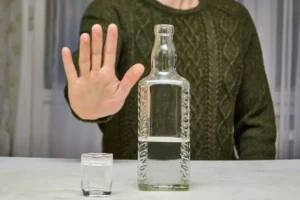
It is important to approach discussions around rappers and drug addiction with sensitivity and empathy, recognizing that addiction is a complex issue that requires support, understanding, and access to appropriate treatment options. By highlighting these struggles, the rap community and society as a whole can work towards fostering an environment that prioritizes the well-being and recovery of individuals grappling with drug addiction. The struggles of rappers battling drug addiction have generated significant public awareness and reactions. Fans, fellow artists, and the media often closely follow these stories, as they humanize the issue and spark discussions about the prevalence of addiction within the rap industry. The reactions to these struggles can vary, ranging from empathy and support to criticism and judgment.
- I will end up thinking that the drug is the best solution to take me out of whatever momentary pain I’m in,” Macklemore wrote in his TODAY essay.
- “This year overdose deaths [in Ohio] are down 31 percent,” said Dennis Couchon, a harm reduction activist.
- He has spoken candidly about his journey to sobriety and the impact of addiction on his life and career.
- But he said keeping more people alive is a crucial first step that seemed impossible only a year ago.
Support Systems in the Music Industry
Derived from the dried flower of the cannabis plant, marijuana is a drug often used for recreational purposes. The active ingredient in the substance is THC, a psychoactive chemical that produces pleasurable effects. Drug and alcohol mentions can influence adolescents to engage https://ecosoberhouse.com/ in substance use, according to Eric Beeson, a licensed professional counselor for the online master’s in counseling program at Northwestern University. In February 2016, rapper Macklemore released “The Unruly Mess I’ve Made,” a record in which addiction is a recurring topic.
Honda Music
Mac Miller’s 2014 mixtape Faces is a long, drawn out exploration on themes of addiction, exploring the highs and lows of drug abuse along with the emotional toll it takes on a person after extended use. Mac has been vocal about his abuse of codeine, known as lean, and the addictive stimulant cocaine. Addiction is an isolating disease that draws us further and further away from those closest to us. Sometimes it can feel as though you are all alone, facing your demons alone. Fortunately, there are artists out there who have struggled with addiction as well. Artists like the ones included on this list can help you find solace, encouragement, and compassion while in the midst of great difficulty.
Stories of Overcoming Addiction
- He has since spoken openly about his experiences and the importance of making positive changes.
- Whether it’s Percocet pills or lean, “it’s all in the same class as heroin and fentanyl,” Chapman said.
- That set him on a path to misusing prescription painkillers, which led to cocaine and then a heroin addiction that eventually landed him in prison.
- At age 14, Macklemore snuck alcohol from his parent’s liquor cabinet which was located above his refrigerator.
He first came out about his addiction in 2008, but rumors of the toll it takes on his life continue into 2013. When he landed in a coma after suffering from severe seizures a few months ago, everyone pointed at a sizzurp OD as the cause, though Wayne claims to have suffered from epileptic seizures his whole life. Yesterday, Gucci got back on Twitter, talkin’ about how he woke up in a hospital ashamed and embarrassed about his behavior, rappers with drug addictions apologizing for the shenanigans, and admitting to a terrible ten-year lean addiction. In case you’re too privileged and white to understand, lean is codeine cough syrup mixed with soda for an ultimate #traplyfe experience. More than 23 million Americans aged 12 or older — or 9.2 percent of the population — have abused drugs in the past month, according to the most recent 2012 data from the National Institute on Drug Abuse.
- The Grammy Award-winning artist was addicted to prescription painkillers for years.
- He has publicly acknowledged his addiction issues and has sought treatment to overcome them.
- How many good rap addiction songs can you think of off the top of your head?
- Beeson said alcohol mentions are not necessarily an endorsement of drinking.

DMX’s addiction issues were well-documented, and he openly spoke about his struggles in interviews and his music. Despite facing numerous setbacks, he has made efforts to overcome his addiction and has sought treatment multiple times. As the rap industry continues to grapple with the challenges of drug addiction, it is crucial to focus on promoting health and well-being within the rap community. By advocating for mental health awareness and encouraging positive change, we can support rappers in their journey towards recovery and create a safer and healthier environment for all. The prevalence of drug addiction among rappers has had a profound impact on the music industry as a whole.

In her November 2023 lawsuit, singer Cassie, who used to date Combs, claimed that she was forced to participate in them. “At first, there’s a mellowing high,” said Stevie Jones, 23, also known as Prophet J, an independent rapper in Louisville, Kentucky. He has similar recollections from his first time misusing codeine syrups. He and his friends drizzled some on a blunt — the slang term for a hollowed-out cigar filled with pot. “It just makes it burn slower — like, get you a little bit higher, I guess,” Prophet J said. Tettey said that’s partly because mainstream artists represent a lifestyle many young adults want for themselves, which can translate into modeling behaviors like opioid misuse.

Denny Kolsch, an Orlando-based mental health counselor who specializes in addiction and mood-related disorders, says that socioeconomic factors may be another reason African-American rappers allude to drug use in their music. Despite the setbacks, DMX made several attempts at recovery and even entered rehab facilities. He was vocal about his struggles and used his music as a form of therapy. Unfortunately, DMX’s battle with addiction ultimately ended tragically when he passed away in April 2021. His story serves as a reminder of the importance of supporting those struggling with addiction and seeking help.
How To Qualify For Inpatient Physical Rehab?
After a “freak off” ended — and they could last a number of days, the indictment alleged — Combs’ team distributed IV fluids for participating members to recover from the physical exertion and drug use. As evidence of these parties, prosecutors said that authorities found “freak off supplies,” including drugs and over 1,000 bottles of baby oil and lubricant, when Combs’ homes in Miami and Los Angeles were raided in March 2024. Sean “Diddy” Combs is currently in jail after being arrested on charges of racketeering, sex trafficking and transportation to engage in prostitution. Phillip Coleman, 34, a rapper in Rochester, New York, who goes by the name GodclouD, started using at age 15 after being prescribed 5-milligram tablets of Percocet following wisdom tooth extraction.
What are some common drugs that rappers struggle with?
While some artists have found success in spite of their struggles with addiction, others have faced tragic consequences. The loss of talented individuals due to drug-related incidents serves as a stark reminder of the destructive nature of substance abuse. Understanding the intersection of rap and drug addiction requires acknowledging the influence of drug culture in the genre and delving into the personal struggles faced by rappers dealing with addiction. By shedding light on these issues, we can promote awareness and understanding while encouraging support and resources for those in need. The struggles faced by rappers with drug addiction echo the experiences of individuals from various backgrounds. Factors such as the pressure to maintain their image, the accessibility and availability of drugs, and the influence of peer groups and environments all contribute to the challenges faced by these artists.
